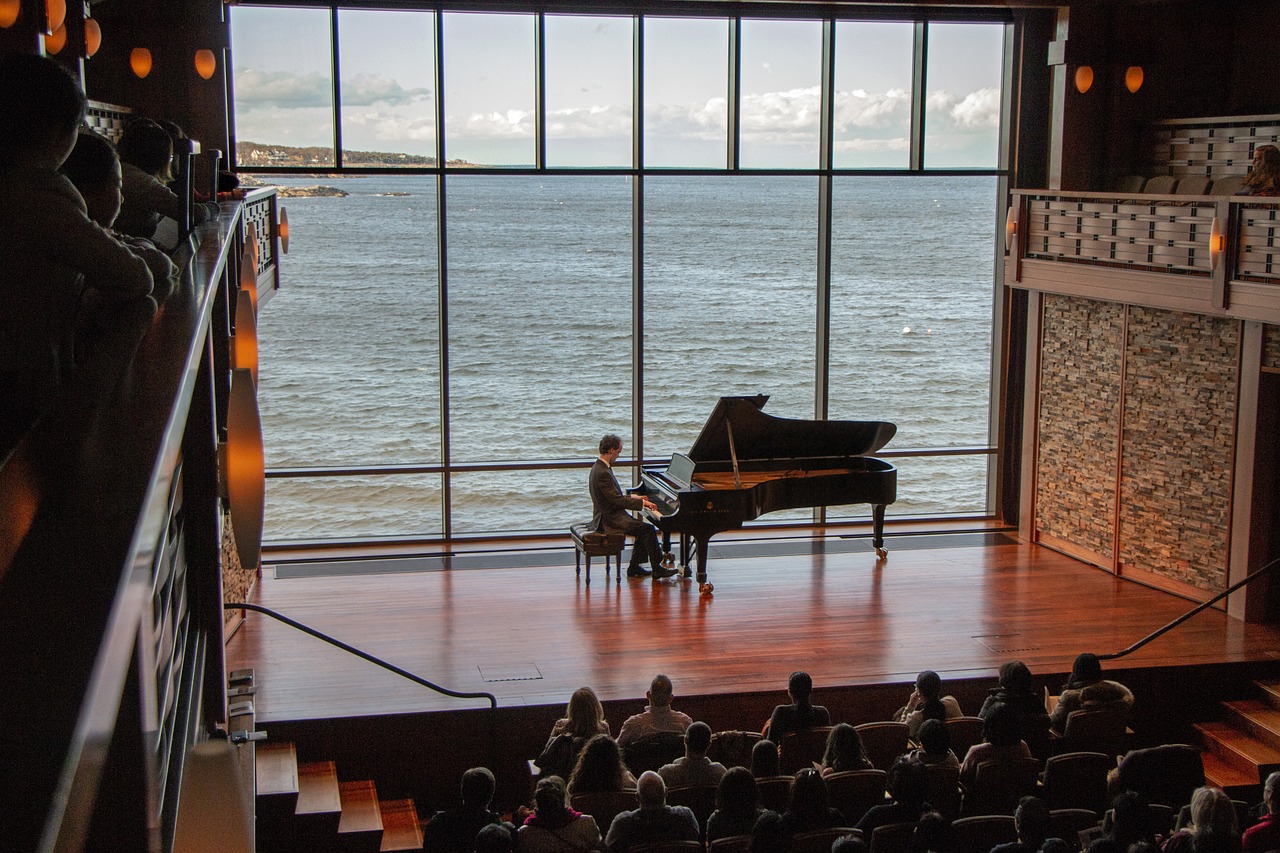Why live performance still matters in the digital age: lessons for classical musicians

We live in a world where almost everything is digitized. Concerts are streamed. Masterclasses happen on Zoom. AI can generate symphonies.
And yet—live performance still holds a power that no screen can replicate.
If you’ve ever sat in a concert hall and felt your entire being vibrate with the energy of the music, you know exactly what I mean. No recording, no high-definition video, no algorithmically perfect playback can replace that moment.
But why? Why does live music remain essential in an age where everything is available instantly, on demand?
Here’s why, as a classical musician, live performance is not just important—it’s your greatest asset.
- The Irreplaceable Magic of the Present Moment
Sergiu Celibidache, the legendary conductor, refused to make recordings. He believed that music only exists in the moment—a living, breathing phenomenon that cannot be captured.
And he was right.
✔️ A recording is frozen in time. A live concert is alive.
✔️ A recording is predictable. A live concert is full of risk and human energy.
✔️ A recording is passive. A live concert is an experience.
🎶 When you perform live, you’re not just playing notes—you’re creating a shared, unrepeatable event.
Every breath, every nuance, every silence between phrases is felt in real-time, by real people.
This is why audiences still crave live performances—even in the digital era.
- Emotional Connection: The Audience Feels What You Feel
Music is more than just sound. It’s energy, emotion, and human connection.
When you play live, your energy fills the room. Your emotions become tangible. The audience feels what you feel—something that no recording can replicate.
✔️ They see the intensity in your face.
✔️ They feel the raw tension in your pauses.
✔️ They breathe with you in the quiet moments.
💡 Celibidache called this the “phenomenology of music”—the idea that music is not just what is played, but what is experienced in the moment, by both performer and listener.
🎶 This is why live performance still matters. Because music isn’t just heard—it’s felt.
- The Power of Shared Energy: The Performer-Audience Loop
Something happens in a great live performance that doesn’t happen in a recording:
Energy flows between you and the audience.
🎶 Imagine this:
✔️ You start playing, and you feel the audience lean in.
✔️ Their attention gives you a surge of energy.
✔️ That energy feeds into your playing—making it even more intense, more inspired.
✔️ The audience reacts, and the cycle repeats.
This loop creates a moment of pure artistic transcendence.
💡 In a recording, the energy stops with you. In a live concert, it flows back and forth.
This is why musicians often play better in front of an audience—because the energy is real, immediate, and electric.
- The Physical and Spatial Experience of Sound
Recordings flatten sound. No matter how good your speakers are, they can’t replicate the spatial, acoustic, three-dimensional reality of a concert hall.
✔️ Live sound moves through the air, surrounding you.
✔️ Different parts of the hall hear different balances, creating a unique experience for every listener.
✔️ Vibrations from the instrument travel through the floor, into your body.
🎶 You don’t just hear live music—you physically experience it.
This is why even the best digital recordings will never replace the depth, warmth, and immediacy of live performance.
- The Human Imperfection That Makes Music Beautiful
One of the biggest differences between live performance and digital music is the presence of imperfection.
And that’s a good thing.
✔️ A live concert has human moments—slightly different phrasing, spontaneous emotion, and yes, even occasional mistakes.
✔️ A digital recording is often “too perfect”—edited, auto-corrected, over-processed.
✔️ Audiences connect more with real, breathing performances than with robotic precision.
💡 Great musicians embrace the imperfections of live music—because that’s where true artistry lives.
🎶 If you only exist in the digital world, you risk losing what makes you human as a performer.
- The Career Advantage: Why Live Musicians Stand Out
Here’s the reality: In an era where AI and digital music are taking over, the ability to perform live is your ultimate advantage.
❌ A pre-recorded track cannot replace the energy of a real musician on stage.
❌ AI-generated music may sound impressive—but it has no soul, no spontaneity, no connection.
❌ Thousands of musicians are producing content online—but very few are commanding a live audience.
🎶 The musicians who will thrive in the future are the ones who can create unforgettable live experiences.
💡 Want to stand out? Master the art of live performance.
- How to Keep Live Music Alive (Even in a Digital World)
In today’s world, being a musician means balancing both live and digital presence.
✔️ Use digital tools to bring people to your live performances.
✔️ Stream live concerts to create a global audience.
✔️ Engage with audiences online—but always invite them to experience your music in person.
💡 Think of social media and YouTube as an invitation—live performance is the real experience.
Final Thought: The Future Belongs to Performers, Not Just Producers
Classical musicians today face a choice:
❌ Hide behind recordings and digital content, hoping that’s enough.
✅ Or embrace the magic of live performance—the one thing technology can never replace.
✔️ A concert is a living, breathing event.
✔️ A performance is an unrepeatable artistic moment.
✔️ An audience is not just watching—they’re experiencing music with you.
🎶 In a world that is becoming increasingly virtual, musicians must remind people of the power of the real.
Live performance still matters.
Live performance always will.
Because music is not just sound—it’s a human connection.
🚀 Keep performing. The world needs it.


